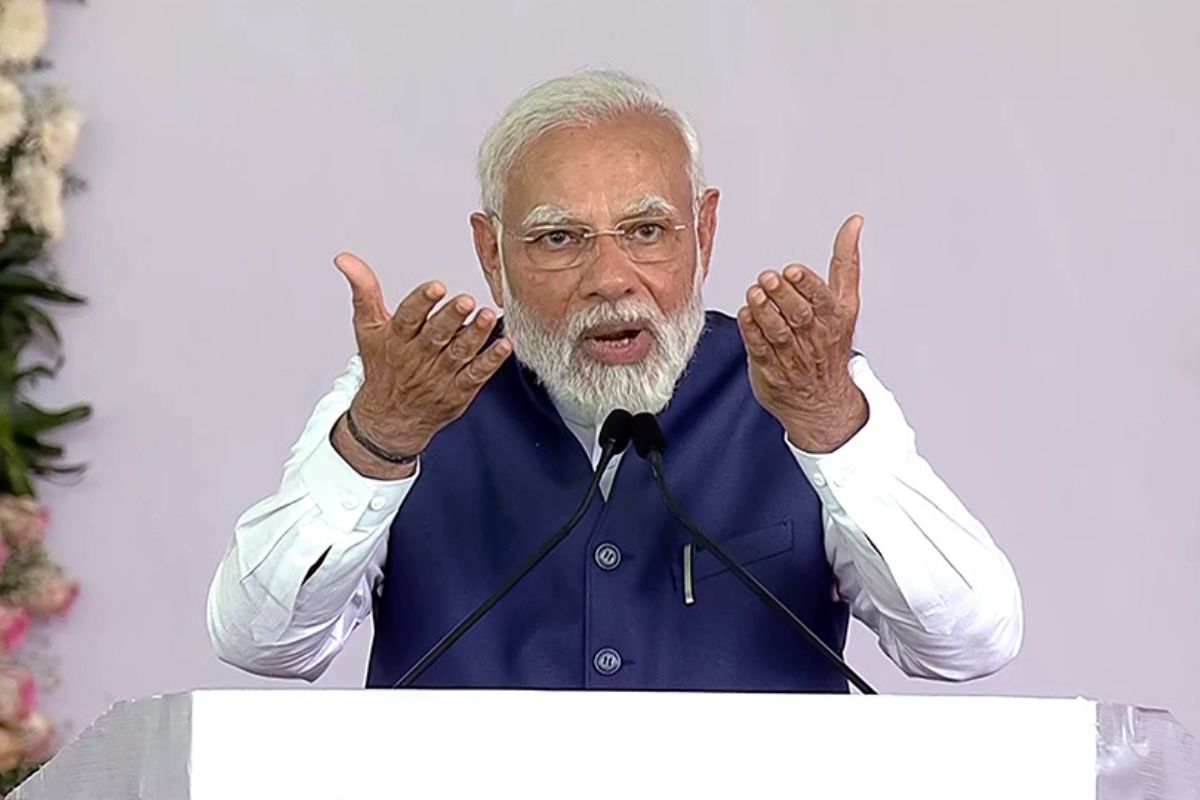PM Modi greets people of Arunachal Pradesh, Mizoram on their Statehood Day
Prime Minister Narendra Modi on Thursday greeted the people of Arunachal Pradesh and Mizoram on their Statehood Day.
Modi said to ensure that benefits of the schemes reached the poorest and well in time, it was essential to have an able and a sensitive administration.

(Photo: ANI)
Prime Minister Narendra Modi on Monday said the government’s mega welfare schemes could achieve their objectives easily and reach the last mile, if there was good governance, and an administration dedicated to serve common citizens.
Addressing a post-Budget webinar on Reaching the last mile, he said mere allocation of large funds could not ensure the nation’s development or public welfare. To ensure that benefits of the schemes reached the poorest and well in time, it was essential to have an able and a sensitive administration, he said.
Advertisement
The prime minister said when Government work was measured and monitored regularly, it was possible to achieve time-bound goals and desired results. The greater the stress on good governance, the easier would be the achievement of reaching the last mile.
Advertisement
The webinar was the fourth of a series of 12 post-Budget webinars organized by the government to seek ideas and suggestions for the effective implementation of the initiatives announced in the Union Budget, 2023-24.
He said vaccination of children in villages and tribal areas seemed an impossible task at one time, and could take years to complete. Things changed once the system was changed and Mission Indradhanush was launched. The Mission helped vaccination drives during the Covid-19 pandemic and proved that good governance had a vital role in last mile delivery, he said.
Interacting with experts and stakeholders, Mr Modi said the saturation policy and reaching the last mile approach complemented each other. At one time the poor were running after the government for basic facilities, and searched for middlemen to get them. This gave birth to corruption and denial of rights to the people.
Today, the government is reaching the poor with different services, he said. “The day we are determined to ensure that every basic facility is provided to every citizen in every area, then we will see a big change takes place in the work culture at the local level. This is the spirit behind the policy of saturation. When our aim is to reach everyone, then there will be no scope for discrimination and corruption. And only then, we will also be able to achieve the goal of reaching the last mile,” the Prime Minister said.
Giving examples of the approach, the Prime Minister cited PM SVANidhi Scheme that linked street vendors to formal banking; the Development and Welfare Board for De-notified, Nomadic and Semi-Nomadic Communities; five lakh common service centers in villages; and the milestone of 10 crore cases of tele-medicine.
The prime minister said that this year’s Budget has paid special attention to taking the mantra of reaching the last mile to tribal and rural areas. He said that for this, thousands of crore rupees have been allocated to the Jal Jeevan Mission.
Work has started on more than 60,000 Amrit Sarovars, out of which 30,000 Sarovars have already been constructed. “These campaigns are improving the standard of living of those Indians living far and wide, who have been waiting for such facilities for decades. We do not have to stop here. We have to create a mechanism for new water connections and the pattern of water consumption. We also have to review what can be done to further strengthen water committees, and prepare people for water storage before the rains come,” he said.
The prime minister asked the stakeholders to discuss ways of linking housing with technology for finding ways of making strong but affordable houses, finding easy ways of benefiting from solar power and group housing models acceptable in both urban and rural areas. He said that this year’s Budget has kept Rs 80,000 crore for housing for the poor.
The prime minister said “for the first time, the country is tapping the huge potential of the tribal society of our country at this scale. Tribal development has been given prominence in this budget as well.” Referring to the robust allocations for the staffing of the Eklavya Residential Schools, the Prime Minister asked the gathering to see the feedback from teachers and students from these schools and how students of these schools can get exposure to big cities.
He asked them to deliberate on the ways of creating more Atal Tinkering Labs in these schools and workshops for aspects related with start-ups.
The prime minister said that for the first time a special mission is being launched for the most deprived among the tribal communities. “We have to rapidly provide facilities to our tribal friends in more than 22,000 villages in more than 200 districts of the country,” he said.
The prime minister mentioned Pasmanda Muslims in this regard. A target has also been set in this budget. A Whole of the nation approach is needed. That’s why every stakeholder related to health will have to work fast,” he said.
The Aspirational District Program has emerged as a successful model in terms of Reaching The Last Mile, the Prime Minister said. Taking this approach further, an Aspirational Block programme is now being started in 500 blocks of the country.
“For the Aspirational Block programme, we have to work keeping in mind comparative parameters in the same way as we worked for the Aspirational Districts. We have to create an environment of competition with each other at the block level as well,” the prime minister said.
Advertisement